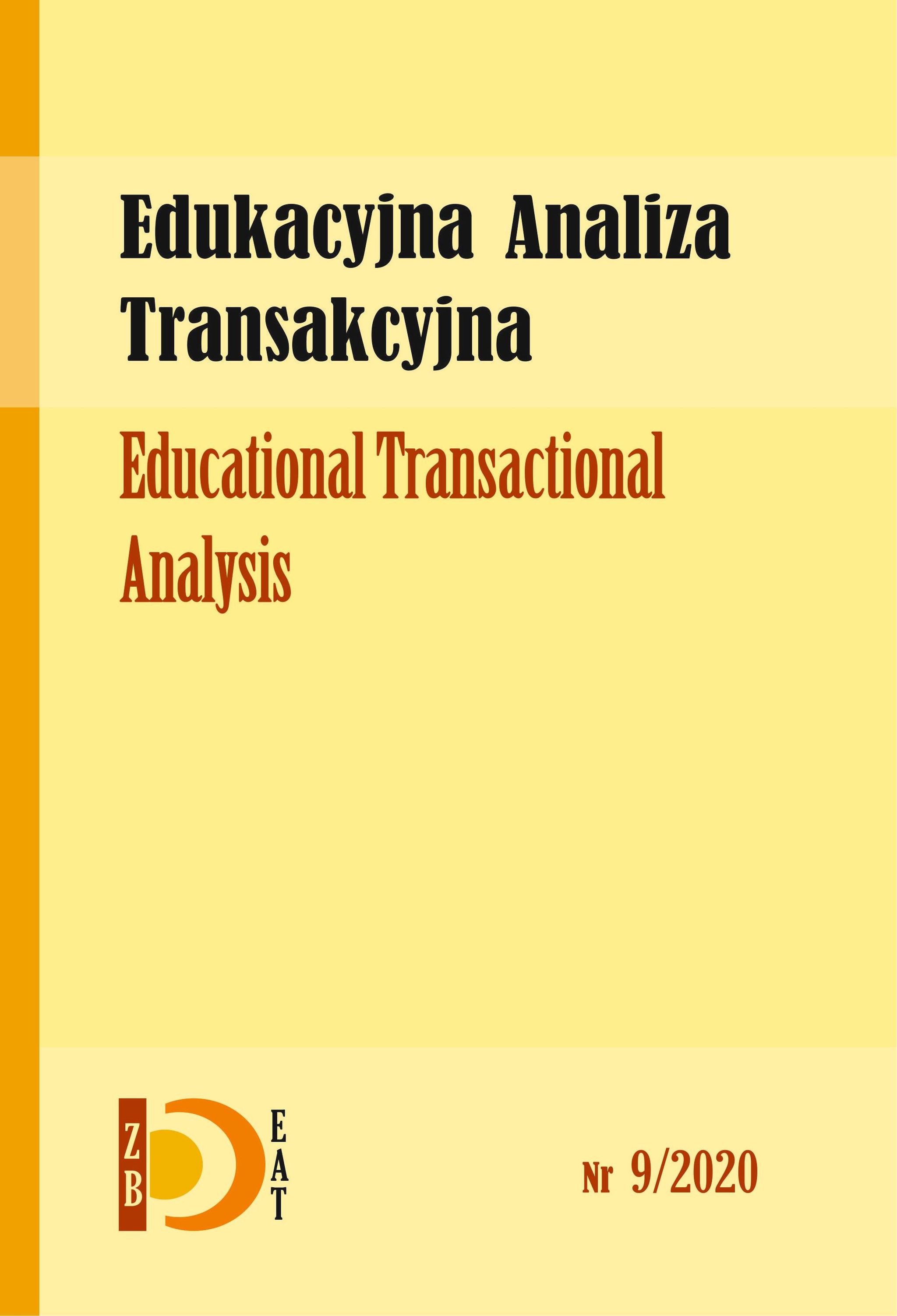Feedback as an educational tool to meet needs and an area of exchange of recognition signs
DOI:
https://doi.org/10.16926/eat.2020.09.01Keywords:
hungers, needs, recognition signs, feedbackAbstract
Referring to the issues of transactional analysis and E. Berne's observations, in this article the author refers to the concept of hunger (Stewart, Joines, 2018, pp. 96 - 97, Tomkiewicz, 1984, pp. 98-102) and signs of recognition (Stewart, Joines, 2018, pp. 96 - 114) as important aspects of building a culture of dialogue since the early years of human existence. The author draws attention to the feedback, as one of the basic tools, which allows to effectively provide knowledge and to set the path of development. As a key element of shaping the attitude of a young person, the author indicates development through communication. In this process, feedback plays a significant role as a catalyst of potential. It allows to monitor and respond to the needs of the client. Thus, it significantly influences the shaping of the sense of his value.
Downloads
References
Buckingham, M., Goodall, A. (2019). The Feedback Fallacy. Harvard Business Review, March-April 2019, 92-101.
Buckingham, M., Goodall, A. (2020). Dziewięć kłamstw o pracy. Warszawa: MT Biznes
Berne, E. (1970). Spiele der Erwachsenen. Hamburg
Berne, E. (2004). w co grają ludzie. Psychologia stosunków międzyludzkich. Warszawa: Wydawnictwo Naukowe PWN.
Maxwell, J.C. (2020). Wszyscy się komunikują niewielu potrafi się porozumieć. Warszawa: MT Biznes
McKenna, J. (1974). Strocking profile. TAJ, 4, 4
Spitz. R. (1945), Hospitalism: Genesis of psychiatric condiitions in early childhood, Psychoanalityc Studies of the Child, s. 53-74
Stewart, I., Joines, V. (2018). Analiza transakcyjna dzisiaj. Poznań: Dom Wydawniczy Rebis.
Tomkiewicz, A. (1984). Niektóre zagadnienia analizy transakcyjnej. Roczniki Nauk Społecznych. Tom XII, Zeszyt 2.
Wilczewska, E. (2019). Skuteczna i rozwojowa komunikacja interpersonalna. Lublin: Fundacja VCC
Downloads
Published
How to Cite
Issue
Section
License
Copyright (c) 2020 Ewa Wilczewska

This work is licensed under a Creative Commons Attribution 4.0 International License.
I am aware that the Educational Transactional Analysis journal is published under a Creative Commons license - Attribution (https://creativecommons.org/licenses/by/4.0/legalcode).
By submitting the article, I agree to make it available under this license

